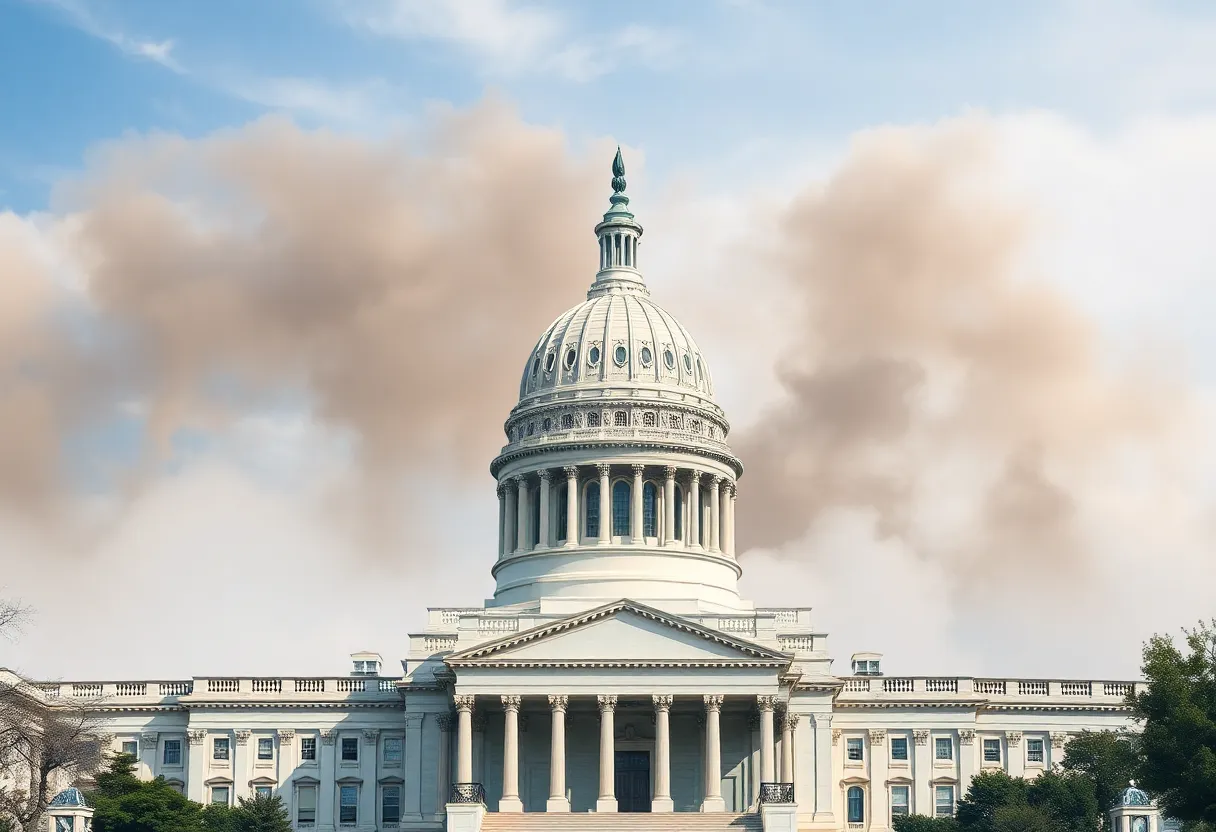News Summary
In a recent vote, the U.S. House of Representatives opted to revoke California’s authority to enforce its environmental standards, specifically its Clean Air Act waiver. The 246-164 vote aims to hinder California’s planned ban on gasoline-only cars by 2035 and impacts numerous states following California’s environmental leadership. Governor Gavin Newsom condemned the decision, calling it lawless, while the Senate’s response remains uncertain amidst potential legal ramifications. The situation spotlights the ongoing tension between state and federal environmental regulations and poses significant implications for the automobile industry.
House Votes Against California’s Environmental Authority
In a bold move that has sent shockwaves through environmental circles, the U.S. House of Representatives has voted to strip California of its authority to enforce its own environmental standards. This decision centers around the state’s significant Clean Air Act waiver, which has permitted California to implement more stringent pollution regulations compared to the federal government.
What Happened in the House?
On Thursday, the House voted 246-164 to prevent the Golden State from banning the sale of new gasoline-only cars by 2035. Just a day prior, another vote aimed to eliminate California’s ability to set emissions standards for heavy-duty trucks as well as tackle the persistent smog issues plaguing the state. This legislative action is significant as it not only affects California but also influences over a dozen other states, including New York, Colorado, and Oregon, that have chosen to follow California’s lead on vehicle regulations.
The Historical Context
California has long been at the forefront of environmental policy, pushing for cleaner air and a reduction in greenhouse gas emissions. Its role in shaping the automobile industry cannot be overstated, given its large automotive market that often drives production standards nationwide. The previous administration attempted to revoke California’s climate policies but encountered legal pushback, illustrating the contentious nature of the state’s environmental authority.
Challenges Ahead
The Environmental Protection Agency (EPA) has raised questions about whether California’s waiver can really be classified as a “rule” that can be overturned through the Congressional Review Act. Further complicating this situation, the Senate parliamentarian and the Government Accountability Office (GAO) have indicated that Congress may lack the authority to disrupt California’s climate initiatives using this legislative approach.
The Reaction
California Governor Gavin Newsom has described the House vote as a “lawless” act and has pledged to defend the state’s vehicle programs. There are indications that if Senate Republicans push forward with a vote to revoke California’s waivers, legal action could be on the horizon. State Attorney General Rob Bonta has stated there may be litigation as a response to any future Senate actions.
Partisan Perspectives
Many view the House votes as a partisan attack on California’s right to set its own environmental standards. Rep. John Joyce (R-Pennsylvania) introduced the resolution asserting that only Congress should regulate the interstate automotive market. Meanwhile, climate advocates have raised alarms that this legislative push risks setting a dangerous precedent that could undermine other state regulations as well.
Automakers Weigh In
Supporters of the House’s measures argue that California’s rules can be overly ambitious and ultimately detrimental to consumer choice. Business groups have echoed this sentiment, claiming that such regulations are unachievable and could stifle innovation in the automotive sector.
What’s Next?
While the House has made its stance clear, it’s important to note that these measures do not guarantee similar outcomes in the Senate. Senate Majority Leader John Thune has not yet clarified how he intends to approach the House’s decisions, leaving many on the edge of their seats regarding the next steps. Moreover, California’s ongoing legal battles may continue to complicate these congressional actions, especially if appeals come into play.
This is a fascinating time in environmental policy, with the potential for significant changes on the horizon. As debates intensify, the balance between state authority and federal oversight regarding environmental regulations remains a hot topic of discussion.
Deeper Dive: News & Info About This Topic
- Reuters: House Votes to Rescind California’s Truck Rules
- Washington Post: California Cars Waiver House Vote
- The Verge: House Republicans Challenge California Car Regulations
- New York Times: California Gas Cars Waiver House Vote
- Wikipedia: Clean Air Act

Author: STAFF HERE PHILADELPHIA WRITER
PHILADELPHIA STAFF WRITER The PHILADELPHIA STAFF WRITER represents the experienced team at HEREPhiladelphia.com, your go-to source for actionable local news and information in Philadelphia, Philadelphia County, and beyond. Specializing in "news you can use," we cover essential topics like product reviews for personal and business needs, local business directories, politics, real estate trends, neighborhood insights, and state news affecting the area—with deep expertise drawn from years of dedicated reporting and strong community input, including local press releases and business updates. We deliver top reporting on high-value events such as Mummers Parade, Philadelphia Flower Show, and Thanksgiving Day Parade. Our coverage extends to key organizations like the Greater Philadelphia Chamber of Commerce and United Way of Greater Philadelphia, plus leading businesses in telecommunications, food services, and healthcare that power the local economy such as Comcast, Aramark, and Children's Hospital of Philadelphia. As part of the broader HERE network, we provide comprehensive, credible insights into Pennsylvania's dynamic landscape.





